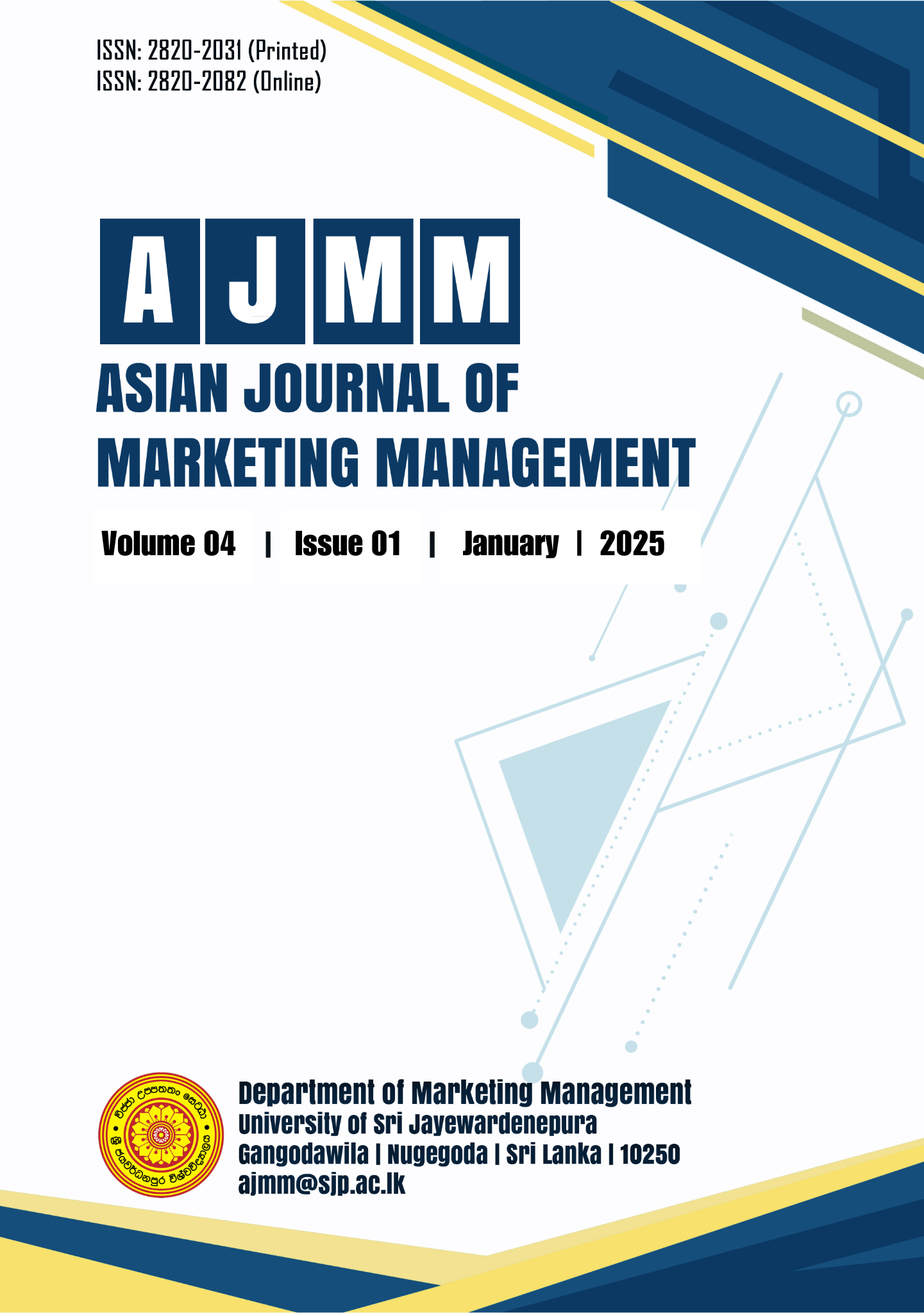The Mediating Role of Perceived Authenticity on Relationship Between Social Media Influencers and Domestic Tourist Travel Decision: A Study Focusing on Multiple Tourist Places in Sri Lanka as Travel Destinations
DOI:
https://doi.org/10.31357/ajmm.v4i1.7720Abstract
Purpose: This study explores the impact of social media influencers (SMIs) on travel decision-making in Sri Lanka, aiming to fill a research gap on their role in shaping traveler behavior. It highlights the potential for SMIs to assist the country's tourism recovery post-crises like the 2019 Easter attacks and COVID-19. The findings offer strategic insights for marketing Sri Lanka as a tourist destination and fostering sustainable tourism growth.
Design/methodology/approach: The study uses a quantitative approach and deductive reasoning to investigate how social media influencers (SMIs) affect Sri Lanka's domestic tourism destinations. Also, this study collected 368 qualified responses from Google form as the sample which was collected as primary data other articles and books referred to this as the secondary data source. For the data analysis, this study adopted the IBM SPSS software tool.
Findings: This study examines how Social Media Influencers (SMIs) impact domestic travel decisions, focusing on SMI Content Relevance, Attractiveness, Expertise, and Trustworthiness. A strong correlation is found between these characteristics and travel decisions, with perceived authenticity playing a key mediating role. The analysis reveals a significant combined effect of these factors on shaping travel preferences.
Originality: This research offers a unique exploration of social media influencers' impact on tourism decision-making in Sri Lanka, focusing on the often-overlooked mediating role of perceived authenticity. By examining how SMI attributes—such as content relevance, expertise, and attractiveness—affect independent travel choices, the study sheds new light on the intricate dynamics between influencers and tourists. Its findings provide novel insights for marketers and policymakers aiming to harness influencer power for sustainable tourism growth.
Implications: This research enriches social influence theory by highlighting how social media influencers shape travel trends, particularly within Sri Lanka's cultural context. Practically, it emphasizes integrating influencers into strategic tourism marketing, especially for post-crisis recovery, enhancing domestic and foreign tourism appeal. The study provides a foundation for evidence-based decision-making, helping stakeholders align strategies with evolving consumer behavior trends.





